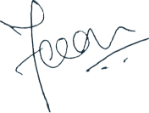The Micro-Habits Of Natural Leaders

Organizations are transitioning from a hierarchy to a network; a shift from a formal command-and-control structure to self-organized networks. What does this mean for leadership?
In a network-based organization, leadership is personal leadership. Leading oneself gives one the ability to lead others. I refer to this progression as natural leadership, as opposed to the formal or titled leadership.
Groups form and dissolve continuously and spontaneously around natural leaders working on themes that are relevant to the organization. The CEO establishes the themes and sets the constraints while teams self-organize around natural leaders. Purpose is centralized while power and influence is decentralized.
All leadership is evolving to become personal leadership, which carries both credibility and influence. Leaders at the center of social change have always shown these traits, from Gandhi and Martin Luther King to Mother Teresa and Mohammed Yunus. People drawn to such leaders say: I believe you because I see that you have walked the path you are asking me to take. I am willing to put myself in the path of difficulty because I resonate with your vision and your authenticity.
The essential question is: How does one evolve into a natural leader?
My answer lies in what I call the micro-habits of natural leadership: small, simple actions done consistently over long periods of time, which create significant positive change in you and also have a positive impact on others.
While I am guilty of not having done this all the time, I have learned what truly inspires others about your leadership is the grit and consistency to conquer your own instincts. Here are a few simple micro-habits I follow:
Walk for ONE hour every day: Sitting is the new smoking. The more you sit, the faster you age. Today the second-most common reason for visiting a doctor (the common cold comes first) is lower back pain. If you sit for six hours every day for 10-20 years, you lose seven years of healthy life. I aim for work-life integration rather than work-life balance. While I do not go to the gym, I build in an hour of walking into my schedules by having walking meetings, especially right after lunch.
Drink ONE glass of water (with lemon) first thing in the morning: One of the simple habits is to drink one glass of warm water first thing in the morning, with a squeeze of lemon. Science tells us that although the lemon water is acidic by nature, by the time it hits the stomach it turns the environment of the stomach alkaline, which reduces acidity and heartburn.
ONE act of kindness every day: People are healed by gratitude. Whether it is helping someone cross the road or stopping to ask someone how they are and genuinely listening, research shows that giving helps the giver more than the receiver. The phenomenon termed ‘the helper’s high’ has mysterious healing powers as well. Go-getter is good, go-giver is better.
Make ONE introduction a week: Adam Grant in his book Give and Take, talks about making introductions – the simplest but most powerful form of giving. I have tried to maintain the habit of making one meaningful introduction a week. The art is to think about two people who should meet but have not, connect them, and get out of the way without expecting anything in return.
Write ONE hand-written card every week: In a digital world, the power of the written word has increasing value. There is a capture and transfer of human energy that only happens when you write. I keep a stack of blank cards with me all the time, so that I am able to spontaneously write a short note of appreciation.
Mentor ONE person: Find one person in more difficult circumstances than you are and offer help with your experience rather than money. You will be surprised by how much the act of mentoring changes you. Just one act may not be helpful but doing one small act for a long period to the same person can change a life.
Read ONE book a week; write ONE blog a month; teach ONE class a year: This is three micro-habits put together, but start where it makes sense for you. Reading even 20 minutes a day allows you to read around 20 books a year. Writing a blog is an excellent way to refine your own thinking about a topic that interests you. Teaching not only helps you improve your own thinking and learning but exposes you to your own biases.
Sleep is sacred: It is important to sleep the same eight hours every night; if you cut it to six, the effect is same as two days of non-sleep. We can actually increase our performance by 29% just by sleeping well.
Start with a micro habit so small that it cannot fail, and then do it for 66 days (it takes anywhere between 21 to 66 days, depending on the person, for an action to become a habit).
Life is a dance between making it happen and letting it happen. So, do small things repeatedly and leave the rest to the universe. You will be surprised by the change.

